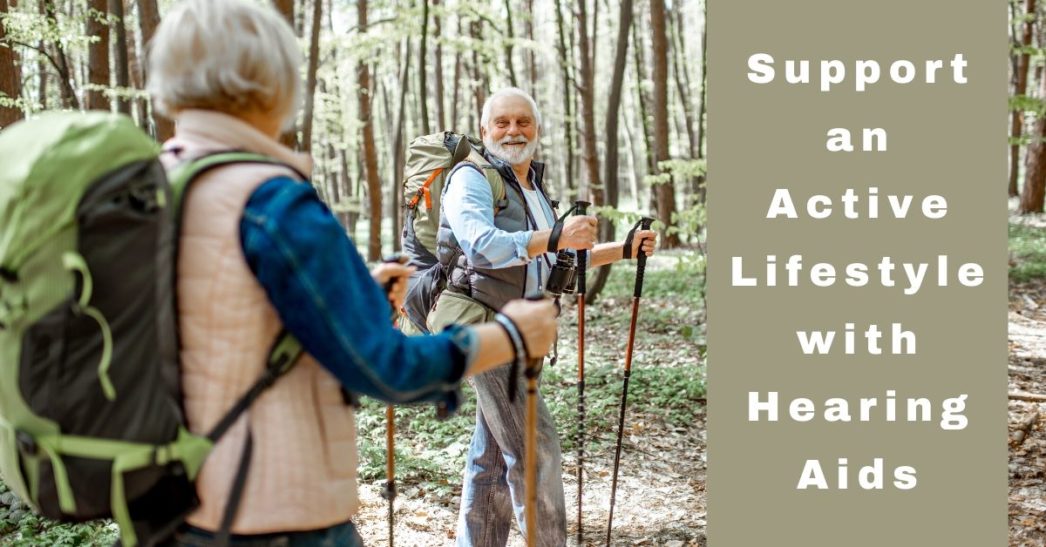In 2020, hearing aids are more advanced and efficient than ever! Innovation in hearing aid technologies has created a wide range of options that are designed to meet your hearing and lifestyle needs. Hearing aids are smaller, more comfortable, and have various features that support an active lifestyle. These complex electronic devices use high level intelligence to enhance user experience, allowing you to fully and easily participate in your favorite activities!
It is really helpful to think about the types of activities you regularly engage in: do you play sports or do any physical activity outside and/or in a gym? Do you go swimming? Are you an avid hiker? Do you listen to music throughout the day? Thinking about the environments you are in and the activities that are part of your life can help you find the best hearing aids for you!
Wireless Connectivity Technology
We are constantly interacting with more complex technology; smart: TVs, watches, phones etc. Wireless connectivity allows you to connect your devices and stream audio easily. This also applies to hearing aids! There are hearing aids that use this technology to allow you to stream audio from other devices directly to your hearing aids.
Taking this a step further, there are hearing aid models that are made specifically for iPhones which makes them compatible with other Apple devices. What is unique and innovative about this is that the hearing aids can access and utilize the GPS on your phone to automatically adjust to your preferred settings. So, if you have saved locations and specific settings, your hearing aids can shift to what you have already established once you arrive! In addition to wireless connectivity, there are other features that support various activities.
Water Resistant Hearing Aids
Leading an active lifestyle can often include sweat, moisture, and water exposure. There are water resistant hearing aids that provide greater protection from water damage. Water resistant is frequently confused or interchangeably used with water proof. However, these do not mean the same thing and the distinction is important to be aware of:
- Water Proof: water cannot penetrate the particular object, no matter the quantity of water or the duration it is exposed to water.
- Water Resistant: the object can resist moisture to a certain degree but not completely.
There are hearing aids that are water resistant which means that they are made with some type of protective coating that resists the absorption of moisture for a period of time. You can identify the degree of water resistance by identifying the IP rating.
IP Ratings
All hearing aids are assigned an Ingress Protection (IP) rating which is two digits that represent the degree of protection from environmental elements. This is how it works:
- The first digit rates degree of protection from sand, dust etc., on a scale of 1-7
- The second digit rates degree of protection from moisture, on a scale of 1-9
Hearing aid devices with an IP68 rating for example, would mean that it is strongly protected from environmental debris as well as moisture.
Best Care for Hearing Aids
In addition to innovative features, investing in the maintenance of your hearing aids can significantly increase their longevity and quality! Exposure to different weather and climates can impact your hearing aids over time. Humidity, buildup of dust, frigid temperatures etc. can damage hearing aid components. So, it is important to be proactive and take measures to best care for your hearing aids. This includes:
- Regularly cleaning hearing aids (using cotton swabs to remove dust, debris)
- Using a dehumidifier to remove moisture
- Storing device in a location that is of room-temperature
Upgrading Your Hearing Aids
Wearing hearing aids should not stop you from doing the things you love! Your hearing aids should not only allow you to hear better, but should also allow you to hear better while doing the activities that are important to you. With so many options, styles, and features that are now available, it can be difficult to figure out what would work best for you. If you are interested in the features and technologies that best support your active lifestyle, we encourage you to consult with a hearing healthcare specialist!


